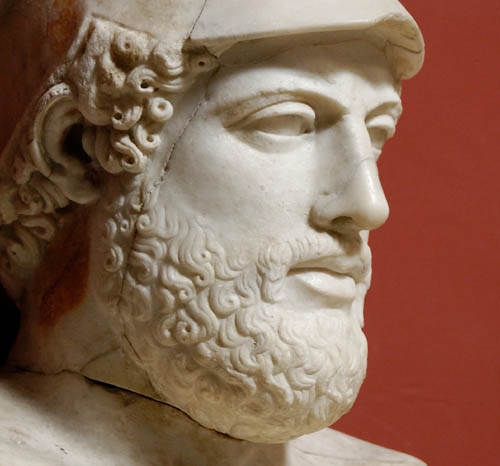The Athenians had a very clear concept of democracy: participation of all citizens in the Government of Polis, that is, the city-state of Athens. Gathered in the Assembly ruled that laws were being proposed, debated and finally vote for simple show of hands. If the results of the vote wasn't clear, a second ballot was required. The method adopted by them was simple, direct, transparent. Not that you do not incur costs to keep the public office or public debt did not exist, simply had found an inexpensive way to express themselves and to govern themselves,. Their democracy was perfect, especially in the time of Pericles. The Athenian strategos, that it featured as the leader or rather the first citizen, He managed to secure in Athens years of splendour and domain: work on the Acropolis, remarkable still today, and the vast Empire is a tangible example. His secret? Curb the instincts of the people, aim for harmony among all citizens, make laws simple and easy to implement, be transparent with all citizens and take the same attitude from them, do not enlarge the Empire declaring war if not sure victory, finding the perfect balance between internal governance and control of the Empire. Here is his epitaph. After the death of Pericles in 429 BC, democracy in Athens fell twice, in 411 b.c.. and in 404 BC, because politicians were not as savvy generation Periclean age posts, forward-looking, cautious and honest intellectually than their predecessor: they sought the support of the people and to get it turned to demagoguery, they created inner circles of power, decided laws that favored their private interests and addressed appointments to public office to persons of their trust. The main difference between Pericles and his successors was the first looked at always the interests of polis bringing prosperity to the town, While the latter looked after their own private interests causing the ruin of Athens and transforming direct democracy in an indirect democracy, much more like a Government of the few, an oligarchy. The legacy that Pericles delivered to citizens allowed them, both in 411 b.c.. that in 404 BC, to rebel against these dishonest politicians and recover, After a few months, democracy and the City Government. They treasure the experiences and lessons of previous years and knew how to govern in peace and prosperity until the arrival of the Romans. Today, in our country we often witness to demagogic attempts by improvised politicians to seek the favor of the people to gain power, ERGO personal benefits; This is taken for granted and that is repeated in the history of democratic Nations. However, should be intelligence of citizens who understand, actually, grant the ability to govern, without giving credit to anyone proposes political bragging capacity that does not own or fake public interests. The collective interest of citizenship for "public affairs" should always be strong updated daily, by requiring those who was assigned the task of governing to give an account of their work, as happens in every workplace. This does not mean that citizens Athenians of the time were more cunning and capable than us today, simply, were more interested in their public interests, savvy and held firmly in the power that democracy granted them. I wonder if we will sooner or later, We too, to give shape to a modern democracy, enough to be remembered in the next duemilaquattrocentoquarantaquattro years, as the Greeks lived to the age of Pericles. Often instead of all UFO research solution unlikely and to improve our democracy, It would also read the epitaph of Pericles:
Freely we live in community relations, and in all regards suspect arises from mutual relations in daily habits, no get angry when we with your neighbor if he does something according to his pleasure and without inflict on each other harassment that, Yes, are not harmful, but our eyes are unpleasant. Without hurt us private and public life reports each other we reverence above all keeps us from violating the laws, in obedience to those who are in positions of command, and institutions, in particular those who suffer injustice or protection of that, Although not written, they bring to those who breach a disgrace by all recognized.
Roberto Rossetti
